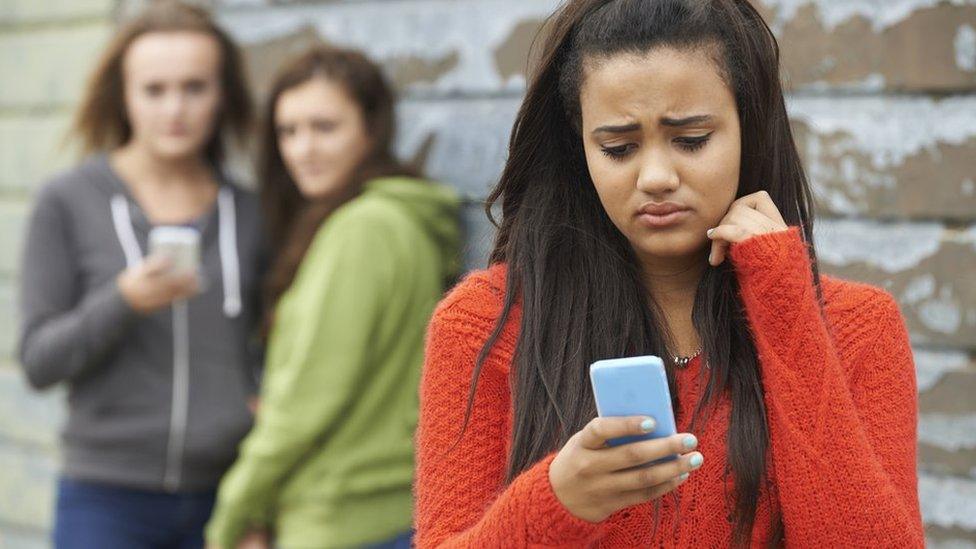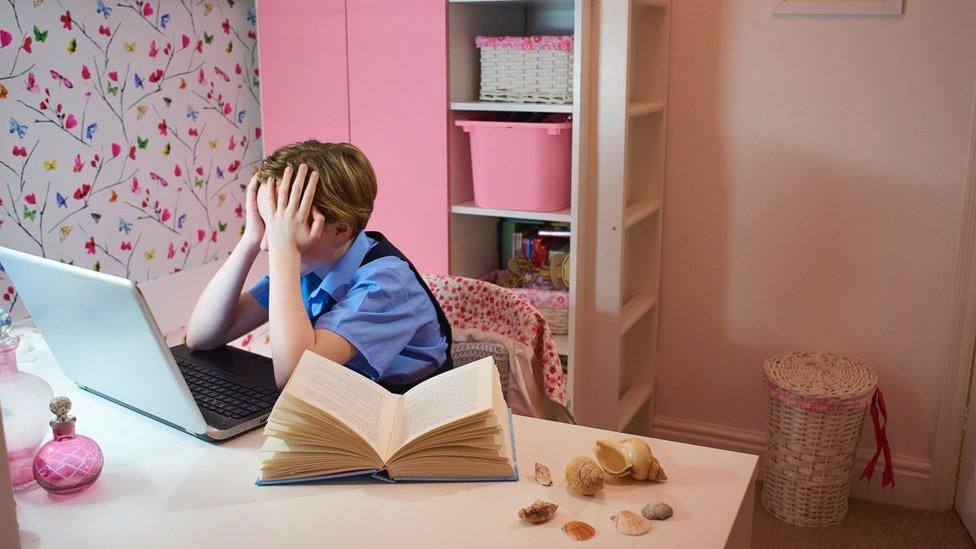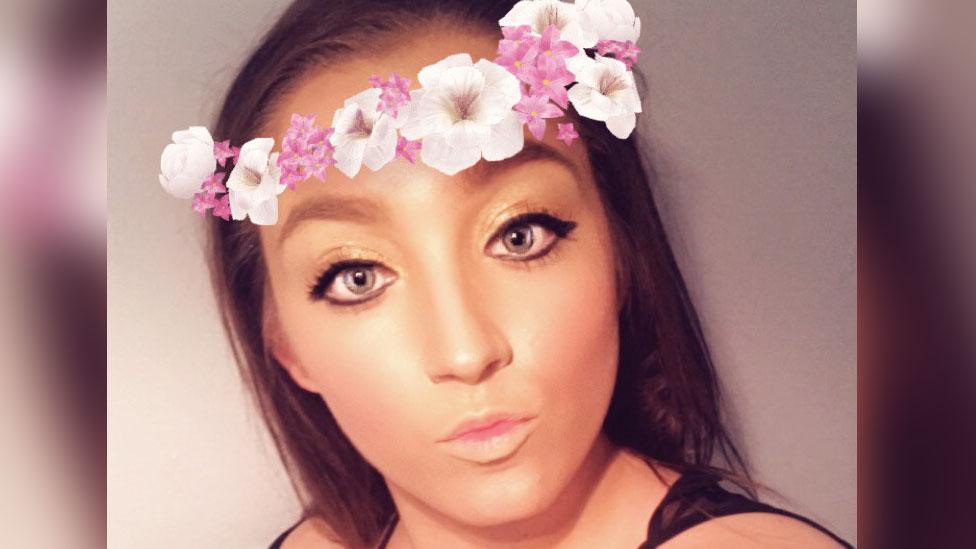Instagram tops cyber-bullying study
- Published
- comments

A life led online can cause young people to feel anxious, inadequate and afraid suggests new report
Research from anti-bullying charity Ditch the Label suggests social media is making youngsters more anxious.
Forty per cent said they felt bad if nobody, external liked their selfies and 35% said their confidence was directly linked to the number of followers they had.
Instagram was highlighted as having become the vehicle most used for mean comments.
Seven per cent of young social network users said they had been bullied on the Facebook-owned photo app.
That compared to a figure of 6% for Facebook itself, 5% for Snapchat and 2% for Twitter and YouTube.
One expert said children were growing up in "a culture of antagonism".
Instagram said it encouraged users to report bullying content.
"We know that comments posted by other people can have a big impact and that's why we have recently invested heavily in new technology to help make Instagram a safe and supportive place," said policy chief Michelle Napchan.
"Using machine learning technology, offensive comments on Instagram are now automatically blocked from appearing on people's accounts. We also give people the choice to turn off comments altogether, or make their own lists of banned words or emojis."
'Big challenge'
The survey, of more than 10,000 young people aged 12 to 20, suggested that cyber-bullying is widespread, with nearly 70% of youngsters admitting to being abusive towards another person online and 17% claiming to have been bullied online.
One in three said they lived in fear of cyber-bullying, with appearance cited as the most likely topic for abuse.
Nearly half (47%) said they wouldn't discuss bad things in their lives on social media and many offered only an edited version of their lives.
"There is a trend towards people augmenting their personalities online and not showing the reality," said Ditch the Label's chief executive Liam Hackett.
Mr Hackett said: "Cyber-bullying continues to be one of the biggest challenges facing young people.
"Not only is the internet redefining the climate of bullying, but also it is having clear impacts upon the identity, behaviours and personality of its young users."
He called on social networks to put more resources into policing the comments people post online and responding to complaints in a more timely manner.
His views were echoed by Anne Longfield, the children's commissioner for England, who also called for a government ombudsman to be set up to mediate between the social network firms and children who are having problems.
She also called for "compulsory digital citizenship classes" in schools.

Nearly half the children surveyed said they wouldn't discuss bad things going on in their lives on social media
The findings appear to contradict research from the Oxford Internet Institute (OII) earlier this month that suggested cyber-bullying was relatively rare.
The OII research - which concentrated on 15-year-olds - found that, while 30% reported regular bullying, only 3% said it happened both off and online.
The huge variation of findings between surveys is often down to how questions are worded, said Lauren Seager-Smith, chief executive of charity Kidscape,
"This survey paints a bleak picture but there is a great variance in these studies. Part of this is about how you ask the question, who you ask and what age they are."
She said that she was not surprised by Ditch the Label's findings.
"We are living in a culture of antagonism. That sadly is the climate our children are growing up in," she said.
"The jury is out on quite how damaging social media is and whether we all need to spend less time on such networks."
But, she added, adults also needed to think about their usage.
"Often parents are equally addicted and they have to ask what impact that is having on family life. It could be time for them to say that there is more to life than social networks and the glossy picture of life that it often shows."
- Published19 July 2017

- Published6 January 2017

- Published11 July 2017
